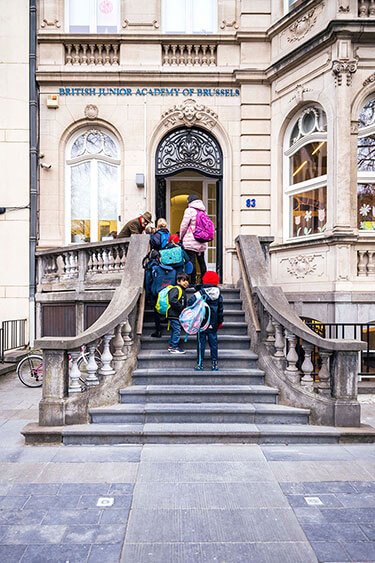British Junior Academy of Brussels Homepage

WELCOME TO BJAB
A school in the heart of Brussels offering bespoke education in a nurturing environment for children from around the world.
ALL YOU NEED within reach
OPPORTUNITIES at your doorstep
The teachers take advantage of their location, taking the students out for exciting trips around the town centre, visiting art exhibitions, museums and more to expand their learning and bring join adventure into lessons.
HEAR IT FROM our perspective
BJAB thrives off of its diverse community, learning from each other every day. Listen to our unique community presenting our school from their perspectives…


